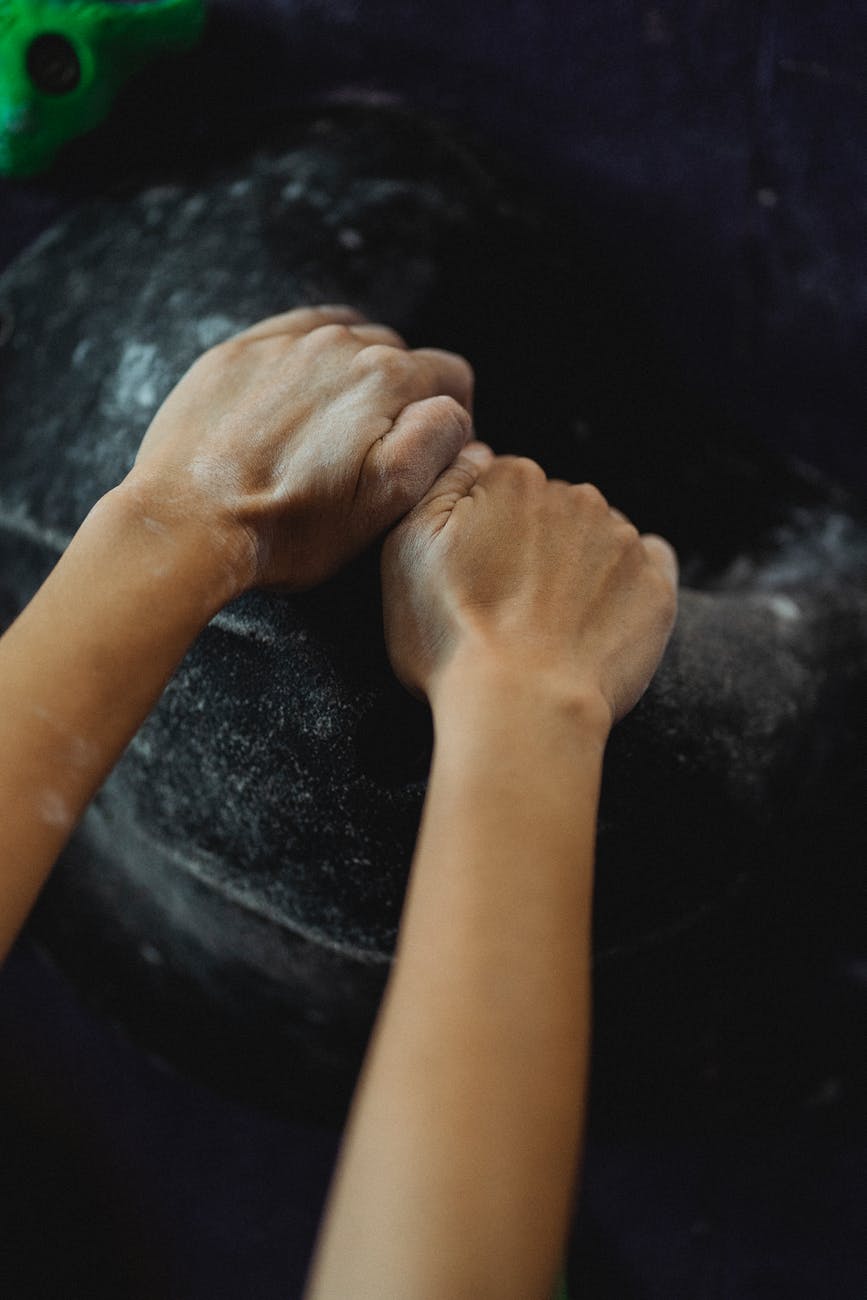The deeper meaning of trust is courage. Because what’s behind the trust is courage.
Let us fragment this. Let’s take a walk and reflect together.
Yes, you, that as well as many of us duel with trust issues.
Who has never gone through a deception?
You were a toddler, you trusted your parents to feed, care and protect you. If they, one of them or both, failed at some point: you felt deceived, you got disappointed.
You got your first crush. If you got rejected at some point: you felt deceived, you got disappointed.
You trusted your closest friends. If they failed you at some point: you felt deceived, you got disappointed.
You trusted your partner, boyfriend/girlfriend, spouse. If they failed you at some point: you felt deceived, you got disappointed.
Those are simplified ways to show that any adult person certainly went through the many phases – infant, teenage, pre-adult, and adult - had to face deception at least once in a lifetime up to now.
Whether your life journey has taken you into a place of mistrust or not, it depends on your own inner processes to "digest" the disappointment and how that learning process is going to support your following human connections (or non-connections).
Yes: it takes emotional intelligence and emotional maturity to accept that we’re all humans, nobody is perfect. Maturity includes also learning how to manage expectations from others.
And even if you were not responsible for other people’s acts: you sure are responsible for your reaction to it. And that responsibility is All Yours.
Including if your trust issues condemn a-priori, others that might come your way.
Risky? Yes, it is.
And it takes strengths to overcome the cynicism that might have got to you, like a soul- tatoo.
And it takes courage to face the risk.
And it takes courage to trust.
1. It Takes Courage To Trust (And Knowledge Of The Self)
Not being naïve.
Trust.
Trusting knowing that there are risks. Trusting despite them. That’s why it takes courage: because you are aware that there are risks at stake.
I’m a believer that, and this is Mother Teresa’s quote, “ Some people come in our life as blessings and some come in our life as lessons”.
Psychology will say that if you don’t trust anyone, then you are possibly projecting your own feelings and self- insecurities onto others.
This means that if you don’t trust others is mainly because, deep down inside, you don’t trust yourself.
You don’t trust enough to believe you’ll handle the results if they come out in a way that is not favorable to you and doesn’t match your expectations.
Let’s walk a little bit more.
Let us say that you have a lot of mistrust in your life.
Let’s bundle Mother Teresa’s quote and the concept of projecting your fears/insecurities/lack of trust onto others…
What if those people are entering your life to bring you a lesson? A lesson so you can learn to… Trust yourself?
And until you do (trust yourself): you’ll keep on dealing, with friends that cheat, people who lie way too much, chiefs who are not trustworthy. Until you learn to build self-trust and become yourself trustworthy, you’ll stumble onto untrusting situations?
That demands work. Self-work. Working on the self.
That, too, demands courage: to look inside and face your shadows and do the work that needs to be done to bring to light the muddy Loch ness monster …
Take a look at the many attributes and faces of courage. Some attributes you may recognize you’ve used in many situations.
The other attributes you might recognize you’ve chickened out a little: those are the attributes of courage you have to work on and develop bulletproof self-trust.
2. The Attributes of Courage
- Feeling fear and doing it anyway
This is one of the most popular definitions of courage. Fear can exist without courage. But Courage ONLY exists in the presence of fear.
That doesn’t mean you have to go all fearless bi-polar and try to jump off a bridge and fly. And that was a bad example because bi-polar in a crisis, face no fear.
But it means you don’t have to go and prove to others that you are brave. It’s a battle where you defy yourself, you overcome your own fear, and you win. By you and for you. You get more confident afterward. More resilient too.
And if it’s something you want, something you know that you want: then fear can be there, but it mustn’t stop you from doing what needs to be done.
And that’s courageous.
- Following your heart
It’s easier t follow others. In short term.
It’s easier to live unconsciously, herd following and numb. In the short term. In the long run: the price is too high.
In the long run, it’s worth to hear your heart has to say. And take some time and endure some self-discovery. And dare at least, to listen to your heart.
Following your heart is the step ahead.
And that’s courageous.
- Facing suffering with dignity and faith
There is no reason to feel shame about crying. Crying is just a way your body responds to express a pain: physical or emotional pain. Some people cry more than others. There’s no loss of dignity in crying.
Facing suffering may put you in a place of no hope and compel you to negotiate your dignity.
Facing suffering without compromising your dignity and keeping faith that you will overcome pain: that’s courageous.
- Persevering in Adversity
If it’s important to you don’t do reversing engineering against yourself and pretend that it’s less important: persuade.
Follow that little voice in your head saying: “I’ll try again tomorrow”
That’s courageous.
- Standing up for what’s right
Ok, this is a confession: it sounds a little too stoic.
But let’s face it: assertiveness is a strength.
And that means you should speak your mind and stand up for what you believe it’s right.
If you stand for what you believe, no matter the outcome…
That’s courageous.
- Expanding horizons and getting out of your comfort zone
Facing the unknown is also an attribute of courage and that might be:
- Learning a new skill:
- Facing the adventure of living in a foreign country
- Do a parachute jump or take a loop on a roller coaster
That’s courageous.
3. Why Is Trust Important
Trust is important because empowers relationships.
Empowers your relationship with yourself, and empowers your relationship with others. Whether they be personal relationships or professional relationships.
Let us say you trust yourself…
a) It’s easier for you to follow your heart, speak your truth and, you deal better with inherent risk.
b) Is less probable that you live with cumulative frustration or with anxiety.
c) Increases productivity
d) Promotes quality communication
e) Improves meaningful relationships
f) Increases fast decision-making
g) You’re self-reliant and depend less on external approval
Building trust is a daily work of compound effect.
Forget naiveness: is a matter of making the choice of taking that calculated risk of trust.
Keeping in mind that as a human being, you should take yourself as seriously as well as you should consider others.
Set your personal inner boundaries. To prevent abusive relationships.
Be curious (not manipulative) about the other person.
Respect is essential. To know that you don’t own a person, nor another person owns you: you chose to relate to each other because you care for each other.
And remember that you can handle any possible outcome.
Because some people are life blessings, other people may be life lessons.
TRUSTING HUGS!
References /Links:
Videos
Dr. Jordan Peterson " You Trust Because You're Corageous"
Songs in this article ( Deep Meaning of Trust...)
See the complete playlist on Music Library Page

Hey! I'm Eunice Veloso. You'll find more about me on my About page.
This is one of my favorite quotes...
"In nature, nothing is lost, nothing is created, everything is transformed"
The Law of the Conservation of Mass
